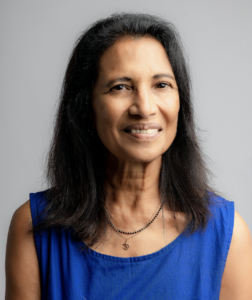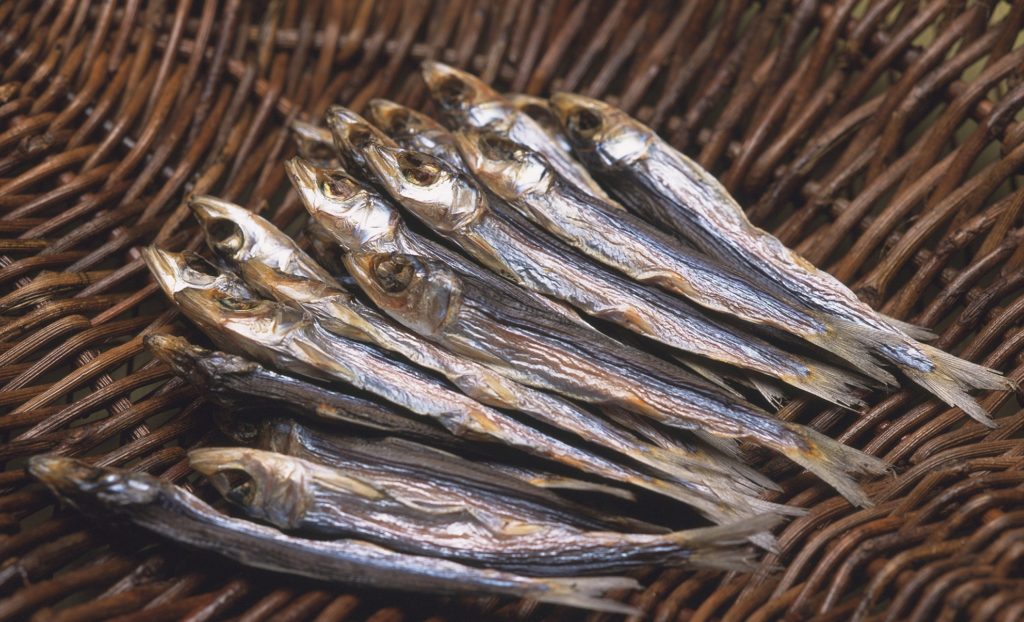The 2021 World Food prize winner was announced on May 11 as the nutritionist Dr. Shakuntala Haraksingh Thilsted, a native of Trinidad and Tobago and a citizen of Denmark. She works as Global Lead for Nutrition and Public Health, WorldFish.
The motivation of the nomination of Dr. Thilsted was for her ground-breaking research, critical insights, and landmark innovations in developing holistic, nutrition-sensitive approaches to aquaculture and food systems. By bringing together interdisciplinary and international collaborators, she drove transformations in aquatic food systems to deliver improved nutrition, resilient ecosystems, and secure livelihoods for millions of vulnerable people across the globe (World Food Prize Foundation).

Dr. Haraksingh Thilsted commented on the nomination: I am truly honoured to receive the 2021 World Food Prize, and I am deeply humbled to be placed in such distinguished ranks as those of past laureates. Aside from personal joy and gratitude, as a scientist, I feel this award is an important recognition of the essential but often overlooked role of fish and aquatic food systems in agricultural research for development. Fish and aquatic foods offer life-changing opportunities for millions of vulnerable women, children, and men to be healthy and well-nourished (WorldFish, 2021)
The global hunger problem
Nutrition is essential for everyone but extra vital for infants, small children, and mothers. Their bodies are working hard to cover all requirements of nutrients, minerals, energy for good health-, body- and mental development. It is an extra challenge when hunger, or in the worse case, malnutrition appears which can lead to starvation, malnutrition, and diverse additional problems, such as underdevelopment of the brain and body for children and childbearing women. Around 690 million people live in hunger worldwide; 34 million already facing acute hunger, meaning they are just a step away from malnutrition and starvation. Of these, 14 million are children.
Critical first 1000 days of a child’s life
Dr. Haraksingh Thilsted is engaged in developing a nutrition-sensitive approach to aquatic food systems at all levels, from the farm to food processing and final consumers, to improve the diet for many vulnerable people in Asia and Africa. Thilsted’s four decades of work improve nutrition and health for millions of malnourished children and their mothers in Asia and Africa. In these regions close to rivers, lakes, or the sea, foods like fresh and dried fish are often central food sources for local people. These foods are often cheaper or more available than alternatives like eggs, livestock, meat products, and fruit. These “aquatic superfoods” are a rich and vital source of micronutrients and fatty acids essential to human health and body and mental development.
Dr. Haraksingh Thilsted was together with Dr. Abdul Wahab from Dean of the Faculty of Fisheries at the Bangladesh Agricultural University (BAU), initiated in the 1990s a partnership with BAU and the Royal Veterinary and Agricultural University (now part of the University of Copenhagen). Together with a talented group of Bangladeshi and Danish students and researchers, they start to develop pond polyculture systems, farming small native fish together with large fish (such as carp or tilapia). It includes reintroducing small native fish species because many fish farmers removed these fishes in the 1970s when they “cleaned” their ponds with pesticides. This expensive practice with pesticides earlier in the 1970s was thought to eliminate competition from the small lower-yielding native fish species before farmers stocked their ponds with large and more marketable fish (WorldFish, 2021).
Fish-based food
Dr. Haraksingh Thilsted recognized several benefits from eating fish and recommends women and their children to include a rich of fish-based food in children’s first 1000 days of life. The first 1000 days are the most critical period for nutrition in a child’s development, and it should be easier to fulfil a child’s needs by adding more fish-based foods.
“Eating more fish and other aquatic foods means a more diverse and nutritious diet. Aquatic food needs more space on people’s plates across the world”
Building on popular local and cultural recipes, Dr. Haraksingh Thilsted developed whole dried fish food products (such as fish chutney and fish powder) and included four times higher nutrient destiny than fresh fish. In combination with improvements in processing practices with less fish waste and higher economic incomes for entrepreneurs who produce these foods. The entrepreneurs are primarily women, and it will likely increase their economy and better gender equality, and reverse the malnutrition. Dr. Haraksingh Thilsted has also created and recommended highly nutritious combinations of dried fish, rice with high iron contents, and sweet potato rich in A-vitamin, and also available year-round and easier to manage for many people using local food with extended storage properties. It can build better resilience in communities when it provides better opportunities for women to gain income from fish farming and provide more available nutrition and food for women and children. It will hopefully contribute to removing more people from hunger and malnutrition. Her work aligns with a similar project, NutriFish1000, which focuses on small native fishes as an essential pillar in the food base for many people, especially for them living near rivers, lakes, and the seas in developing countries. UN’s Sustainable Development Goals
Sustainable Development Goals
The work to include more native small fish-based foods to women and children and implement more women-driven aquaculture is supporting several sustainable development goals (SDGs), such as SDG2 (zero hunger), SDG3 (good health and well-being), and SDG5 (gender equality). Using native fish species also supports SDG14 (life below water) because it does not distribute the natural ecosystem by introducing non-native species and is better adapted to the surrounding environmental conditions. “We must always remember that our economic dreams rest on the foundations of a sound ecological system and protecting the very natural assets that provide so much economic value. In fact, over and above economic value, there are deep and intrinsic values to nature, affecting multiple generations, and essential for our physical and mental well-being, and for the well-being of the planet itself” (Foster et al., 2021). Using native species is also more sustainable for human use and the environment because of the natural element than adding a non-native species and their special needs.
It requires increased awareness and introduction among people about the benefits of using small native fish as an essential food source for children and childbearing women and can hopefully lead to reduced malnutrition among children in the first 1000 days of their life. Both Dr. Haraksingh Thilsted’s work and the NutriFish1000 project strive to spread awareness of the benefits and help people living near rivers, lakes, and seas to exploit the potential of using aquaculture as a source of income and food. It will hopefully contribute to more children and women leaving the brutal grip of malnutrition.
About World Food Prize
The World Food Prize Foundation annually awards for a specific, exceptionally significant, individual achievement that advances human development with a demonstrable increase in the quantity, quality, availability of, or access to food through creative interventions at any point within the full scope of the food system. The fields of achievements often include soil, land, plant- and animal science; nutrition-, food science and technology, rural development; water-, nature- and environmental resource conservation; feeding programs focusing on unique- or extraordinary cases; poverty elimination, and more.
Reporting by Filippa Ek, SIANI
